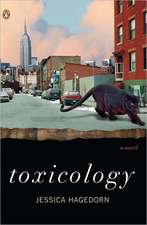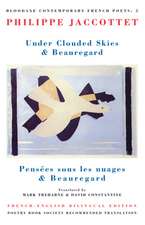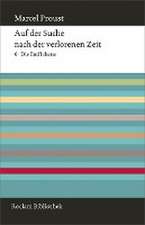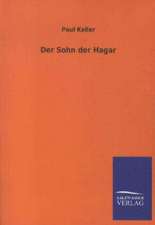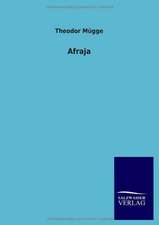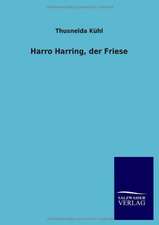The Guermantes Way
Autor Marcel Prousten Limba Engleză Paperback – vârsta de la 18 ani
| Toate formatele și edițiile | Preț | Express |
|---|---|---|
| Paperback (4) | 135.87 lei 22-36 zile | |
| Mint Editions – 28 sep 2021 | 135.87 lei 22-36 zile | |
| CREATESPACE – | 154.04 lei 22-36 zile | |
| Penguin Books – 30 apr 2005 | 158.17 lei 22-36 zile | |
| – | 168.26 lei 43-57 zile | |
| Hardback (1) | 192.98 lei 22-36 zile | |
| Mint Editions – 28 sep 2021 | 192.98 lei 22-36 zile |
Preț: 154.04 lei
Nou
Puncte Express: 231
Preț estimativ în valută:
29.47€ • 30.86$ • 24.39£
29.47€ • 30.86$ • 24.39£
Carte disponibilă
Livrare economică 17-31 martie
Preluare comenzi: 021 569.72.76
Specificații
ISBN-13: 9781495394928
ISBN-10: 1495394921
Pagini: 590
Dimensiuni: 152 x 229 x 30 mm
Greutate: 0.78 kg
Editura: CREATESPACE
ISBN-10: 1495394921
Pagini: 590
Dimensiuni: 152 x 229 x 30 mm
Greutate: 0.78 kg
Editura: CREATESPACE
Notă biografică
Marcel Proust was born in Auteuil in 1871. His father, an eminent Professor of Medicine, was Roman Catholic and his mother was Jewish, factors that were to play an important role in his life and work. He was a brilliant, very literary schoolboy, and later a half-hearted student of law and political science. In his twenties he became an assiduous society figure, frequenting the most fashionable Paris salons of the day. During this period he published a volume of sketches and stories, Les Plaisirs et le jours, and between 1895 and 1900 wrote a novel, Jean Santeuil, which was in many ways a first draft for his masterpiece À la recherche du temps perdu.
After 1899 his chronic asthma, the death of his parents and his growing impatience with society caused him to lead an increasingly retired life. In the early 1900s he produced celebrated literary pastiches and translations of Ruskin, The Bible of Amiens and Sesame and Lilies and it was during this period that he wrote Contre Sainte-Beuve, although it was not published until 1954. From 1907, he rarely emerged from a sound-proofed room in his apartment on the Boulevard Hausmann in Paris, in order to insulate himself against the distractions of city life as well as the effect of the trees and flowers which he loved but which brought on his attacks of asthma. He slept by day and worked by night, writing letters and devoting himself to the completion of À la recherche du temps perdu. He died in 1922 before the publication of the last three books of his great work. With À la recherche du temps perdu Proust attempted the perfect rendering of life in art, of the past recreated through memory. It is both a portrait of the artist and a discovery of the aesthetic by which the portrait is painted, and it was to have an immense influence on the literature of the twentieth century.
After 1899 his chronic asthma, the death of his parents and his growing impatience with society caused him to lead an increasingly retired life. In the early 1900s he produced celebrated literary pastiches and translations of Ruskin, The Bible of Amiens and Sesame and Lilies and it was during this period that he wrote Contre Sainte-Beuve, although it was not published until 1954. From 1907, he rarely emerged from a sound-proofed room in his apartment on the Boulevard Hausmann in Paris, in order to insulate himself against the distractions of city life as well as the effect of the trees and flowers which he loved but which brought on his attacks of asthma. He slept by day and worked by night, writing letters and devoting himself to the completion of À la recherche du temps perdu. He died in 1922 before the publication of the last three books of his great work. With À la recherche du temps perdu Proust attempted the perfect rendering of life in art, of the past recreated through memory. It is both a portrait of the artist and a discovery of the aesthetic by which the portrait is painted, and it was to have an immense influence on the literature of the twentieth century.
Descriere
Descriere de la o altă ediție sau format:
This volume opens up a vast, dazzling landscape of fashionable Parisian life in the late 19th century, as the narrator enters the brilliant, shallow world of the literary and aristocratic salons. Both a salute to and satire of a time, place, and culture, this new translation will introduce a new generation to the literary richness of Marcel Proust.
This volume opens up a vast, dazzling landscape of fashionable Parisian life in the late 19th century, as the narrator enters the brilliant, shallow world of the literary and aristocratic salons. Both a salute to and satire of a time, place, and culture, this new translation will introduce a new generation to the literary richness of Marcel Proust.




